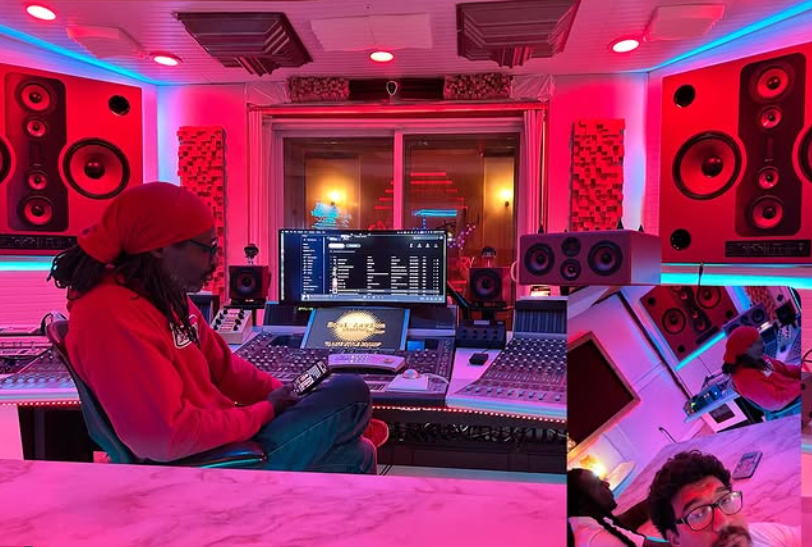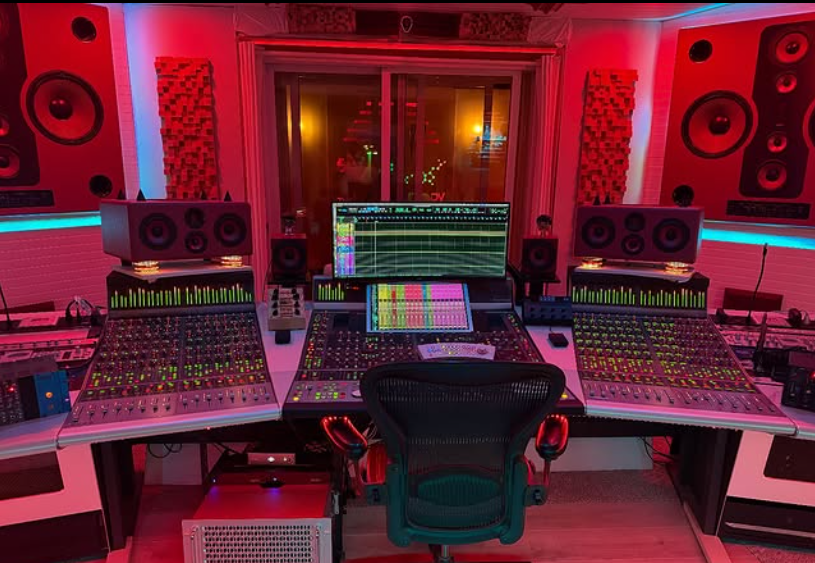Recording your music in studios can be thrilling, but it can turn into a living nightmare if you don’t estimate your time and costs effectively. Doesn’t matter what you are planning to record, singles or albums, knowing how much recording time is sufficient is very important. In this blog, we will discuss how you can prepare, workflow, and strategically budget to maximize your productivity and creativity in the studio. And how you can efficiently use every minute in the music studios in Atlanta.
1. Understanding Your Project Scope:
Before you go on booking a slot at a recording studio, you need to first understand what you actually want to achieve. Are you planning to record a single shot, an EP, or a full-length album for your opening shot in the industry? Each of these project types asks for a different time commitment.
Single (1 Song):
If you are planning to compose a single song, we will require much less time than a full-length album. Usually, a 4-8 hour slot at your nearest recording studio will do the work. Or you might require an extra 4-8 hours for mixing and mastering to define the edges of your song.
EP (3-6 songs):
EP is a lengthy process; however, it is not longer than recording a full-length album. For composing an EP, you will at least require 2-3 full studio days to compose a refined mix.

Album (8-12 songs):
As you know, an album is a collection of 8-12 different songs, and requires a lot of effort and time. Composing a music album is a tough task; you need to be fully dedicated to the work. Depending on how much work, preparation, and track complexity there is, you will require at least 1-2 weeks of dedicated work.
When you have a defined goal, your work gets easier and faster. Having a plan helps you estimate how much time each stage, tracking, overdubbing, mixing, and mastering will take.
2. The Role Of Pre-Production:
Pre-production is your silent weapon, especially when it comes to meeting efficiency standards. Pre-production is all about rehearsing, finalizing arrangements, and addressing all the weak spots before heading to the studio. If you skip this step, that means you are stepping into the studio totally unprepared. That means you are going to end up wasting hours figuring things out during paid studio time. Hence, wasting both your precious time and hard-earned money.
Tips For Effective Pre-production:
- Make sure you have rehearsed all your songs before you step inside the studio for your recording session. Rehearse until every part feels natural.
- Experiment and create demos and identify what works best for you and what does not.
- You need to be sure about the tempos, keys, and arrangements before entering the studio.
- Do not forget to share your reference tracks with your studio producer or engineer.
A well-prepared artist often cuts the time in half and uses most of the studio time. However, if you are unprepared, you will end up wasting both your time and money.
( Also Read More – How Much Recording Time Do I Need? )
3. Factoring In Studio Workflow:
Every studio is different; not all studios operate in the same manner. While you might find some engineers fast and intuitive, there are also some who take their time to make everything perfect. Similarly, some analog studios might require you to make a lot of adjustments and set up, much
more than a digital recording studio.
So, what you can do to achieve the eBay out of the studio is– ask about the studio’s workflow in advance.
Consider the following points:
- Set Up time: set up takes time, even drum miking alone can take 1-2 hours sometimes.
- Sound Checks: Sound checks are important, and you can expect another hour gone while trying to balance all the levels and get the tones right.
- Breaks: Your creative energy will drain out quickly. So, make sure you plan your break intervals in advance.
When you have an understanding of how your recording studio works, you can avoid the unrealistic delays and rescheduling. Plus, you can do better with your budget for downtime.
4. Breaking Down The Recording Stages:

Recording is not just about hitting the “Record” button and singing your heart out; you won’t be making the result sound good this way. Each stage in your recording process requires care, focus, and time allocation, which should reflect that.
Tracking: (Recording instruments/ Vocals):
Tracking your music requires the most time in the entire recording process. Except:
- Vocals: Vocals require a minimum of 1-2 hours per song; however, it totally depends on how many retakes and harmonies you change.
- Drums: Drums require at least 3-6 dedicated hours for setting up and tracking.
- Guitars/Bass: depending on the number of layers, it can take around 2-4 hours.
- Keyboards/Synths: On average, it can take 1-3 hours max.
Editing:
After you are done with your recording, the next step is to edit. Editing involves cleaning up timing issues, tuning vocals, and arranging parts. The editing process can take you around 1-3 dedicated hours per song.
Mixing:
Mixing is wild; it is one of the most important steps that refines your entire recording. A professional mix might take 4–8 hours per song. If there are more complex productions, it can go up to 12 hours.
Mastering:
Mastering takes around 1–2 hours per song. It is to make sure that your recorded tracks sound cohesive and ready for distribution.
5. Budgeting Smartly For Studio Time:
Your studio session cost varies widely depending on what location you choose, how reputable the location is, and what equipment is available. A professional studio may charge between $1,000–$3,000 per day. While a smaller one will only cost you between $30–$100 per hour.
Here’s how to budget effectively:
Set a clear time cap:
Keep a track, know how many songs you are going to record, and how much time each one of them will take.
Prioritize Quality Over Quantity:
It is always better to have two polished tracks than five rushed and faulty ones.
Account For Revision:
Always revise your recorded tracks for mistakes, and add a buffer for retakes or changes.
Negotiate Package Deals:
Many music studios in Atlanta Georgia offer discounts for multiple-day bookings.
Having a well-planned budget ensures that you don’t run out of your funds middle way through the project.
Conclusion:
Whether you’re searching for recording studios in Atlanta, choosing the right facility that matches your budget and project needs is crucial for success.
Budgeting your recording studio hours is all about how you balance creativity with efficiency. When you understand your project scope, prepare thoroughly, and communicate clearly with your team. You can not only save a lot of time but also money. The goal isn’t just to record songs, it’s to make every hour count toward something truly remarkable.

